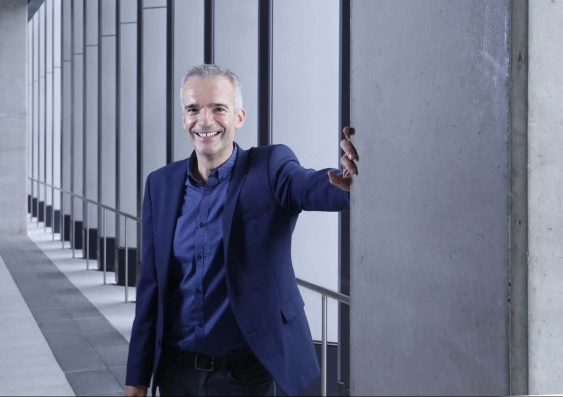Urban migration: building resilient neighbourhoods
With over half the world’s population now living in urban areas, how will cities manage potential over-crowding, poverty and natural disasters resulting from climate change?
With over half the world’s population now living in urban areas, how will cities manage potential over-crowding, poverty and natural disasters resulting from climate change?

Fran Strachan
Communications Manager Low Carbon Living CRC
+61 2 9385 5402
fran.strachan@unsw.edu.au
With over half the world’s population now living in urban areas, how will cities manage potential over-crowding, poverty and natural disasters resulting from climate change?
Professor David Sanderson, UNSW’s inaugural Judith Neilson Chair of Architecture and international disaster risk-reduction expert, will discuss how to increase post-disaster community resilience in the Utzon lecture, Resilient Neighbourhoods?, this Wednesday, 4 May.
“By focusing on the reduction of risk, and the capacity to ‘bounce back’, resilience unites people to address challenges collectively,” says Sanderson who is co-author of the recently released Urban Disaster Resilience: New Dimensions from International Practice in the Built Environment (Routledge).
By drawing on lessons from recent urban disasters in poorer countries, Sanderson will critique current practice and provide suggestions on how built environment professionals can contribute to building lasting resilience.

Professor David Sanderson - UNSW's Judith Neilson Chair of Architecture. Photo: Grant Turner
The day after the lecture Professor Sanderson will also host a panel discussion, Urban Migration and Crises: a 21st century challenge with international experts in humanitarian response and the built environment on Thursday, 5 May.
Urban Migration and Crises panelists:
Jerold S Kayden is the Frank Backus Williams Professor of Urban Planning and Design at the Harvard University Graduate School of Design. His research and teaching focus on the relationship between law, the built environment and public-private urban development. Professor Kayden has been a consultant to the World Bank, the International Finance Corporation, the United States Agency for International Development and the United Nations Development Program.
Paul Currion is a consultant focused on system change in the humanitarian sector, with particular interest in technology, migration, and urban response. He is currently working with the Start Network and has previously worked with NGOs, UN agencies, private companies and donors in countries including Kosovo, Afghanistan, Iraq, Liberia and Bangladesh.
Andrea Rodericks is an independent consultant who has worked on humanitarian and development issues for the past 25 years, mostly with CARE International. As Program Director she led CARE International’s development and humanitarian response programming in multiple locations, most recently in India and Bangladesh.
Anshu Sharma is an urban planner and is also trained in architectural design, building construction, regional planning, disaster and environmental management, community participation, economics and law. Sharma has 20 years of experience working across South Asian countries, coordinating work at the community level and is the co-founder and Board Member of SEEDS, a voluntary organisation working on community-based disaster management in South Asia.
Verónica Tello is Vice-Chancellor’s Postdoctoral Research Fellow at the National Institute for Experimental Arts, UNSW Art & Design. She is currently researching and participating in a range of artist-led projects (in the US, Europe and Australia) that facilitate collaborations with refugees, museums, galleries and universities: the aim is to address a variety of challenges to education, survival and political representation in the face of the global ‘refugee crisis’.
What: Utzon Lecture, Judith Neilson Lecture in Architecture: Resilient Neighbourhoods? and Urban Migration and Crises: a 21st century challenge panel discussion
When: Utzon Lecture: Wednesday, 4 May, 7–8.30pm. Panel: Thursday, 5 May, 7pm
Where: Utzon Lecture – Mathews Theatre B, Mathews Building, UNSW Kensington: Panel – Law Theatre G04, UNSW Kensington